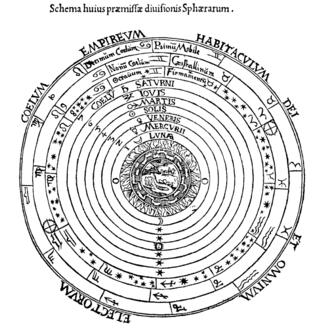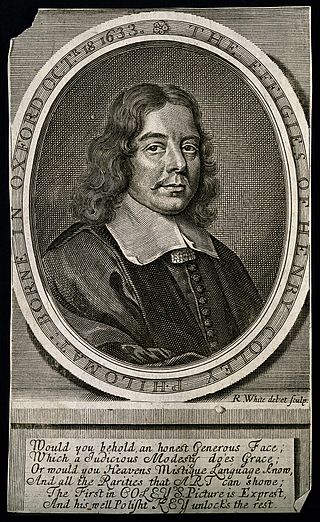Related Research Articles

Astrology is a range of divinatory practices, recognized as pseudoscientific since the 18th century, that claim to discern information about human affairs and terrestrial events by studying the apparent positions of celestial objects. Different cultures have employed forms of astrology since at least the 2nd millennium BCE, these practices having originated in calendrical systems used to predict seasonal shifts and to interpret celestial cycles as signs of divine communications. Most, if not all, cultures have attached importance to what they observed in the sky, and some—such as the Hindus, Chinese, and the Maya—developed elaborate systems for predicting terrestrial events from celestial observations. Western astrology, one of the oldest astrological systems still in use, can trace its roots to 19th–17th century BCE Mesopotamia, from where it spread to Ancient Greece, Rome, the Islamic world, and eventually Central and Western Europe. Contemporary Western astrology is often associated with systems of horoscopes that purport to explain aspects of a person's personality and predict significant events in their lives based on the positions of celestial objects; the majority of professional astrologers rely on such systems.

Michel de Nostredame, usually Latinised as Nostradamus, was a French astrologer, apothecary, physician, and reputed seer, who is best known for his book Les Prophéties, a collection of 942 poetic quatrains allegedly predicting future events.

William Lilly was a seventeenth century English astrologer. He is described as having been a genius at something "that modern mainstream opinion has since decided cannot be done at all" having developed his stature as the most important astrologer in England through his social and political connections as well as going on to have an indelible impact on the future course of Western astrological tradition.

Astrological belief in correspondences between celestial observations and terrestrial events have influenced various aspects of human history, including world-views, language and many elements of social culture.

Astrology and astronomy were archaically treated together, but gradually distinguished through the Late Middle Ages into the Age of Reason. Developments in 17th century philosophy resulted in astrology and astronomy operating as independent pursuits by the 18th century.

Mundane astrology, also known as political astrology, is the branch of astrology dealing with politics, the government, and the laws governing a particular nation, state, or city. The name derives name from the Latin term mundus, 'world'.

Māshāʾallāh ibn Atharī, known as Mashallah, was an 8th century Persian Jewish astrologer, astronomer, and mathematician. Originally from Khorasan, he lived in Basra during the reigns of the Abbasid caliphs al-Manṣūr and al-Ma’mūn, and was among those who introduced astrology and astronomy to Baghdad. The bibliographer ibn al-Nadim described Mashallah "as virtuous and in his time a leader in the science of jurisprudence, i.e. the science of judgments of the stars". Mashallah served as a court astrologer for the Abbasid caliphate and wrote works on astrology in Arabic. Some Latin translations survive.

Tetrabiblos (Τετράβιβλος) 'four books', also known in Greek as Apotelesmatiká (Ἀποτελεσματικά) "Effects", and in Latin as Quadripartitum "Four Parts", is a text on the philosophy and practice of astrology, written in the 2nd century AD by the Alexandrian scholar Claudius Ptolemy.

Old Moore's Almanack is an astrological almanac which has been published in Britain since 1697.

Luca Gaurico was an Italian astrologer, astronomer, astrological data collector, and mathematician. He was born to a poor family in the Kingdom of Naples, and studied judicial astrology, a subject he defended in his Oratio de Inventoribus et Astrologiae Laudibus (1508). Judicial astrology concerned the fate of man as influenced by the stars. His most famous work is the Tractatus Astrologicus. Later in life he was named a bishop of the Catholic Church.

Deborah Houlding is an English author researcher, educator, and publisher who specializes in astrology. She has been referred to as "one of the UK's top astrologers". She wrote The Houses: Temples of the Sky. and created the Skyscript website. Houlding has been awarded by the Astrological Associations of Great Britain, Romania, and others.
The Centiloquium, also called Ptolemy's Centiloquium, is a collection of one hundred aphorisms about astrology and astrological rules. It is first recorded at the start of the tenth century CE, when a commentary was written on it by the Egyptian mathematician Ahmad ibn Yusuf al-Misri.

Dennis Elwell was a British astrologer, journalist, author and lecturer. He is the author of the book Cosmic Loom, and has contributed articles to the publications The Future of Astrology, the Astrological Association Journal, American Astrology, Prediction and Mountain Astrologer.

In astrology, certain stars are considered significant. Historically, all of the various heavenly bodies considered by astrologers were considered "stars", whether they were stars, planets, other stellar phenomena like novas and supernovas, or other solar system phenomena like comets and meteors.

Renaissance magic was a resurgence in Hermeticism and Neo-Platonic varieties of the magical arts which arose along with Renaissance humanism in the 15th and 16th centuries CE. These magical arts were divided into seven types.

Astrology had support in early Christianity, but support declined during the Middle Ages. Support for it grew again in the West during the Renaissance.
William Andrews was an astrologer, known mostly from his almanac. He published the Astrological Physician (1656), to which William Lilly contributed a preface. Among the Ashmolean Museum's manuscripts, there is preserved a letter, dated from Ashdown, Essex, 31 March 1656, in which Andrews thanks Lilly for writing the preface. In 1672 he published Annus Prodigiosus, or the Wonderful Year 1672, and More News from Heaven unto the World, or the Latter Part of the Wonderful Year 1672; being a further Account of the Portents and Signification of the Stars touching the United Netherlands. His almanac first appeared in 1655 as The Caelestiall Observator and appeared under various titles until 1672, when it appeared as News from the Stars, the title it would bear for the remainder of its run. He lived at Radwinter in Essex from 1668. The date of his death is unknown, but his will was proved in Radwinter in 1713.
Quentin Poulet was a Burgundian Catholic priest, known as a scribe, illuminator, and librarian, from Lille. Between 1492 and at least 1506, when he disappears from the historical record, he was the first recorded librarian of the Old Royal Library of England, and probably "an arbiter of continental taste for the English royal court".

John Frawley is a traditional astrologer, writer and educator, who has been noted for practicality and directness of approach, a depth of scholarship, and a provocative, challenging and witty style.

Henry Coley was an astrologer and mathematician, and amanuensis of William Lilly.
References
- Armstrong (C. A. J.), An Italian astrologer at the court of Henry VII, in Jacob (E.F.), Italian Renaissance Studies. A Tribute to the late C. M. Ady, London, 1960, 433–454.